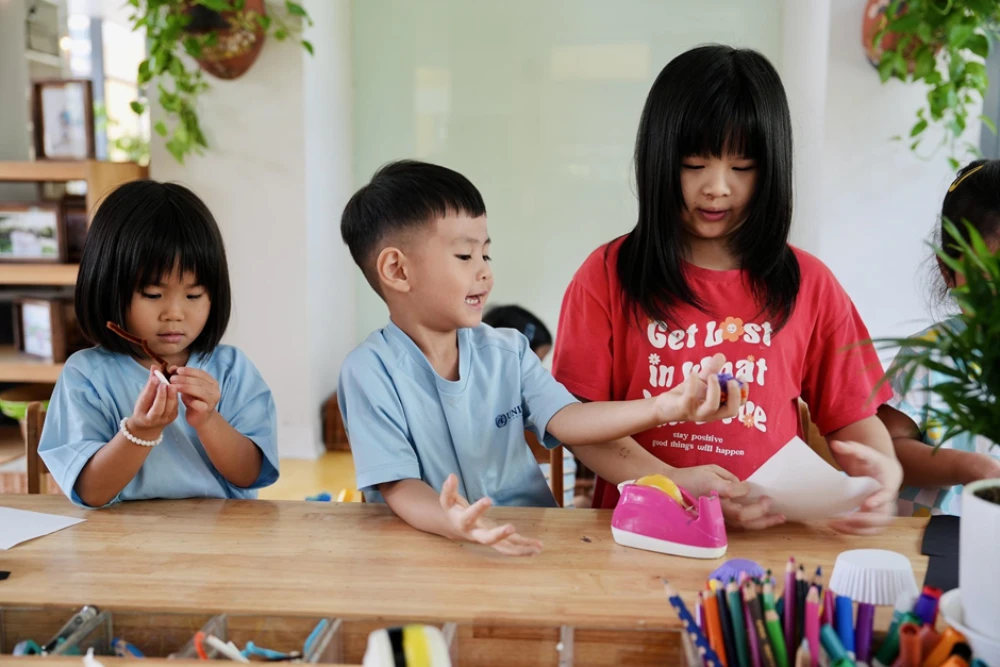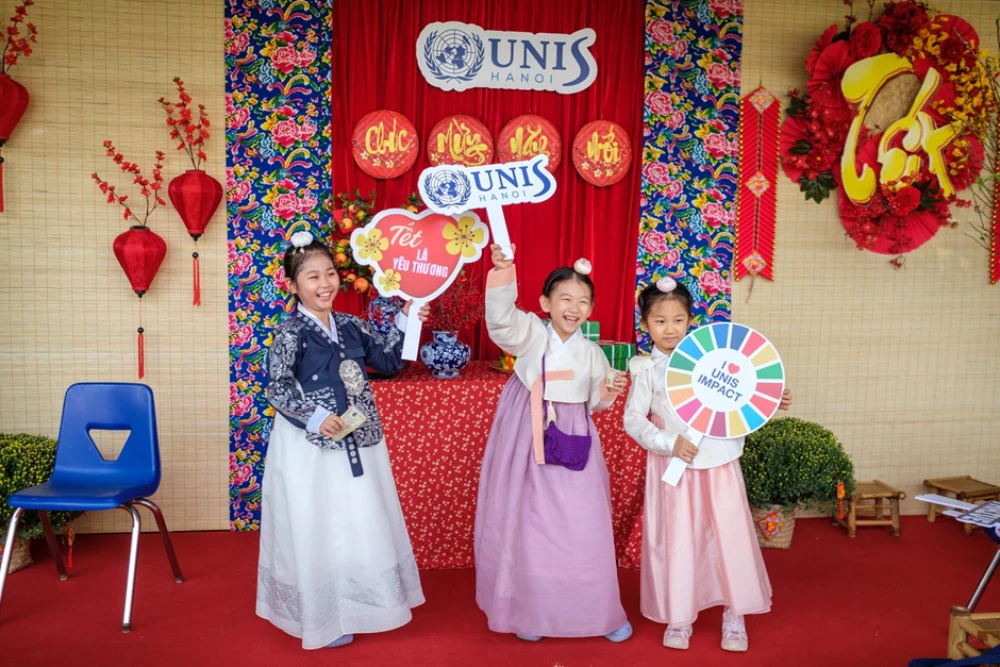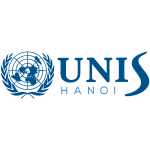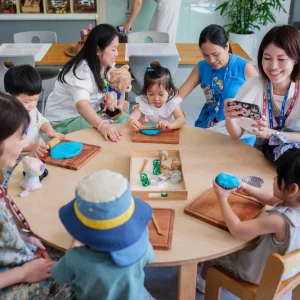Today, many parents are seeking education systems that nurture both academic excellence and global awareness. This is where the International Baccalaureate (IB) stands out. But what is an IB school, and why do families across the world choose it?
This article will define the concept, explain its key features and values, explore the IB Diploma Programme, compare it with other education systems, outline its benefits, and highlight how UNIS Hanoi delivers the IB experience.
What is an IB School?
An International Baccalaureate (IB) school, also known as an IB World School, is a school authorised by the International Baccalaureate Organisation (IBO) to deliver one or more IB programmes.
These schools meet rigorous international standards and are committed to providing a curriculum that promotes inquiry, intercultural understanding, and lifelong learning.

Many IB schools offer the full IB continuum, comprising the Primary Years Programme (PYP), Middle Years Programme (MYP) and Diploma Programme (DP). This continuum ensures coherence and progression throughout a child’s educational journey.
The IB curriculum encourages inquiry-based learning, critical thinking, and international-mindedness, while fostering the IB Learner Profile – a set of attributes that help students become reflective, principled, and open-minded global citizens.
What Makes the IB Programme Distinctive – Features and Value
The IB programme is unique in its structure, philosophy, and outcomes. It offers students an education that goes beyond examinations to focus on intellectual, personal, emotional, and social growth.
Key features of the IB programme include:
- Broad curriculum: Students study a balanced range of subjects, from languages and sciences to humanities, arts, and mathematics, ensuring both depth and breadth.
- Critical thinking and inquiry: The IB encourages questioning, reasoning, and reflection rather than rote memorisation.
- Continuum of learning: The progression from PYP to MYP to DP creates consistency in educational approach and philosophy.

The value of the IB programme lies in its global recognition and holistic development of students:
- Global recognition: The IB Diploma is respected by leading universities worldwide.
- Preparation for the future: Students gain academic skills, adaptability, intercultural understanding, and self-management.
- Parental confidence: Parents appreciate the IB’s emphasis on student agency, balance, and transferable skills.
- Institutional value: For international schools like UNIS Hanoi, being an IB World School signals quality, international connectivity, and educational continuity for globally mobile families.
Understanding the Core of the IB Diploma Programme
At UNIS Hanoi, the IB Diploma Programme (DP) represents the culmination of a student’s IB journey. Designed for students aged 16–18, it provides a rigorous yet balanced education that prepares learners for higher education and life beyond school.
Students select subjects across six groups:
- Group 1 – Studies in Language and Literature: Language A – Literature; Language A – Language and Literature; Self-Taught Language A: Literature.
- Group 2 – Language Acquisition: Language B; Language ab initio (available at Standard Level only).
- Group 3 – Individuals and Societies: Economics, History, Psychology, Global Politics, Environmental Systems and Societies (ESS).
- Group 4 – Experimental Sciences: Biology, Chemistry, Physics, Computer Science, Environmental Systems and Societies (ESS).
- Group 5 – Mathematics: Mathematics (Higher Level and Standard Level); Mathematical Studies (Standard Level).
- Group 6 – The Arts: Theatre, Film, Music, Visual Arts.

In addition to these subjects, the IB Diploma’s core components are what make it exceptional:
- Theory of Knowledge (TOK): Encourages students to reflect on the nature of knowledge and how we know what we claim to know.
- Extended Essay (EE): A 4,000-word independent research project that fosters academic writing and investigation.
- Creativity, Action, Service (CAS): Develops students beyond academics through creative pursuits, physical activity, and community engagement.
These elements together nurture well-rounded learners with academic rigour, research capability, and compassion.
How IB Compares With Other Education Programmes
Parents often compare the IB with other popular systems such as A-Levels (UK), Advanced Placement (AP) (US), or national curricula. The primary distinction is that the IB offers a comprehensive framework rather than a collection of individual subjects.
Unlike the A-Level or AP systems, where students select individual subjects and focus narrowly, the IB Diploma requires breadth across six subject groups along with its unique core elements. This structure ensures a more holistic education and encourages students to make connections across disciplines.

Furthermore, while many national programmes focus heavily on examinations, the IB assesses through both internal and external evaluations, valuing analytical writing, oral presentations, and practical projects. Its global orientation, emphasis on inquiry, and commitment to developing global citizens set it apart from more exam-driven curricula.
Parents should also note that many schools offer both IB and national programmes, allowing families to evaluate which best aligns with your child’s learning style and future goals.
The Benefits of Choosing an IB School
IB education extends beyond the classroom, preparing students for success in university and in life. Some of the key benefits include:
- Broader academic preparation: Students study a wide range of disciplines, achieving both depth and breadth of knowledge.
- Critical thinking and research skills: The Extended Essay, Theory of Knowledge, and subject work foster independent analysis and reasoning.
- Preparation for global universities: The IB Diploma is recognised by universities worldwide, giving students access to international pathways.
- Development of the whole person: CAS activities promote creativity, service, and physical engagement, encouraging balance and well-being.
- International-mindedness and cultural awareness: The curriculum fosters respect for diversity and a sense of global citizenship.
- Lifelong learning skills: The IB nurtures curiosity, self-management, and reflection, helping students thrive in an ever-changing world.
UNIS Hanoi: Our IB Programme, Culture & Outcomes
Located in Hanoi, Vietnam, UNIS Hanoi is proud to be an authorised IB World School offering the full IB continuum: the PYP, MYP, and DP. Our international community of learners and educators is united by a mission to inspire lifelong learning, compassion, and leadership for a better world.
We deliver the IB philosophy through an inquiry-driven curriculum, experienced IB-trained faculty, and a supportive learning environment. Our facilities are designed to enhance both academic and co-curricular development, while our diverse student body brings global perspectives to daily learning.

In the Diploma Programme, students engage deeply with the IB core. They undertake Extended Essays under faculty mentorship, participate in TOK seminars that challenge assumptions, and complete CAS projects that connect them to both local and global communities.
We support parents and students throughout the IB journey through orientation sessions, university counselling, and workshops designed to help families understand and navigate the IB’s requirements. Our graduates consistently gain admission to leading universities worldwide, reflecting the strength and integrity of our IB education.
We invite families to visit our campus, attend open houses, or contact our admissions team to learn more about how our IB programmes can shape your child’s future.
Author Profile

- UNIS Hanoi is ever-evolving, but one thing that remains is our passion to nurture and equip students to be agents of change for a better world.
Latest entries
 Calendar, News and Publications30 Oct 2025What is an IB School? A Complete Guide for Parents
Calendar, News and Publications30 Oct 2025What is an IB School? A Complete Guide for Parents Calendar, News and Publications29 Oct 2025School Tour at UNIS Hanoi – A Comprehensive Guide for Parents
Calendar, News and Publications29 Oct 2025School Tour at UNIS Hanoi – A Comprehensive Guide for Parents Calendar, News and Publications28 Oct 2025How to Choose the Right School for Your Child: The 2025 Guide
Calendar, News and Publications28 Oct 2025How to Choose the Right School for Your Child: The 2025 Guide Calendar, News and Publications27 Oct 2025Student Recruitment at UNIS Hanoi: A Parent’s Comprehensive Guide
Calendar, News and Publications27 Oct 2025Student Recruitment at UNIS Hanoi: A Parent’s Comprehensive Guide